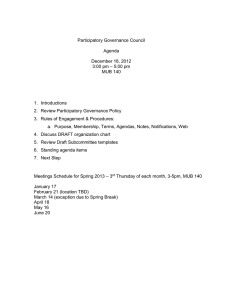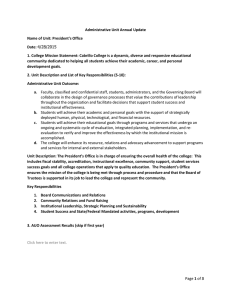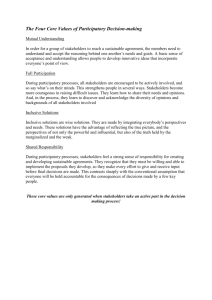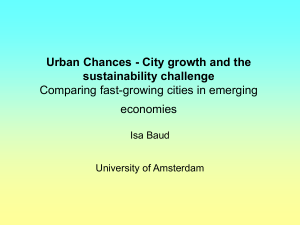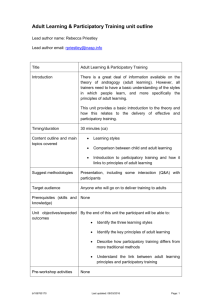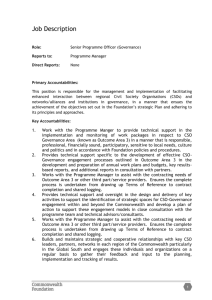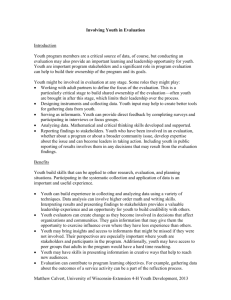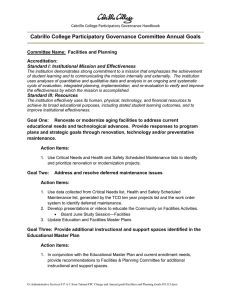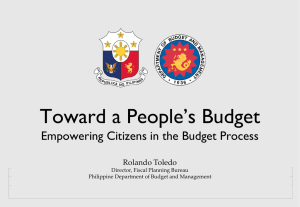PWforPG-Ottawa - Carmen Malena
advertisement
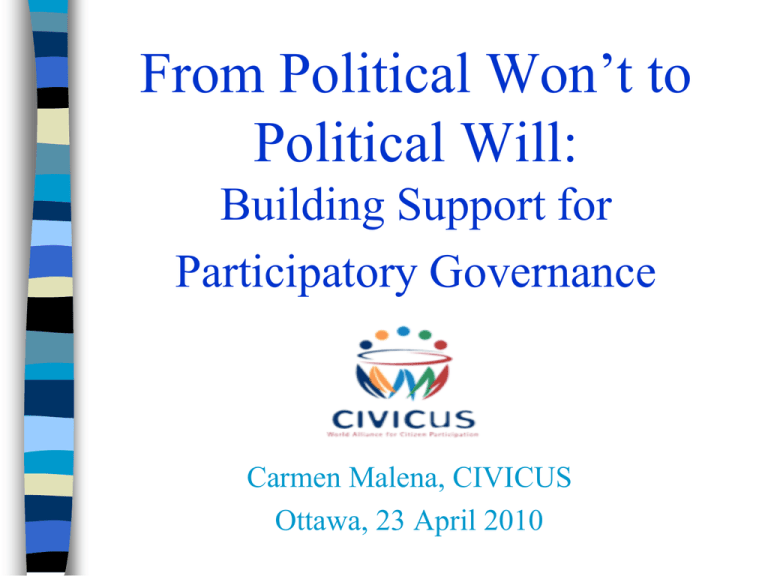
From Political Won’t to Political Will: Building Support for Participatory Governance Carmen Malena, CIVICUS Ottawa, 23 April 2010 Why a book on building political will for participatory governance? Growing consensus that governance is key to the achievement of critical human development goals and that good governance is participatory governance (PG). Lack of political will is identified as a key obstacle (and remains largely unanalyzed and unaddressed). Paying attention to issues of political will has critical operational implications. The book analyzes a rich and diverse range of successful PG practices Policymaking and planning Public budgets National level Local level Public expenditures Public services Public oversight Participation in legislative committees (South Africa) Evidence-based policy advocacy (Uruguay) National dialogue on resource allocation (Bolivia) Participatory development planning (Tanzania, Tajikistan) Community roundtables (US) Participatory budgeting (Canada, Bolivia, Zimbabwe) Overview and scrutiny committees (UK) Participatory public expenditure tracking (Uganda) Advocacy and Legal Advice Centers (Transparency International) Community management and monitoring of public services (UK, Uganda) Right to information legislation (Honduras) Social contracts (Philippines, Zimbabwe) Understanding Political Will The book finds that political will…. Depends on the three key elements of: Political want Political can Political must Is influenced by a range of factors at: Individual level Institutional level Relational level Societal level A framework for analyzing political will Some key reasons for “political won’t” Key strategies for building “political will” Political Want •Nurture constructive state-CSO relationships •Identify political self-interests Political Must Political Can •Empower and mobilize citizens (pressure from below) •Influence top leadership (pressure from above) •Capacity development (for all concerned stakeholders) KEY MESSAGES To build political will, we must… 1. Adopt approaches that simultaneously address political want, can and must. • • • • Many current initiatives focus on only one of these elements. Important to create both incentives and sanctions, focus on establishing positive working relations but applying public pressure as necessary. Particular need to strengthen political want. Requires multi-dimensional approaches, creative coalitions and strategic thinking. KEY MESSAGES To build political will, we must… 2. Focus on citizen/CS-state interface. • • • • • Where are the spaces for productive interaction? How are they created and managed? Who participates? Who controls? What are the terms of engagement? Support is needed to enhance the quantity and quality of these interactions. KEY MESSAGES To build political will, we must… 3. Build consensus (and skills) for the legitimate “political” role of civil society. • • • Essential to establish a middle ground of “critical collaboration” between gov’t & CSOs. Requires professionalism and a shift from opposing to proposing on the part of CSOs. Evidence-based and grassroots-supported approaches are key. THANK YOU!
